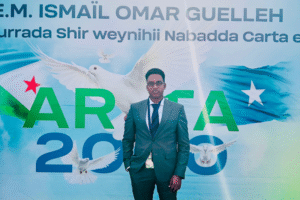
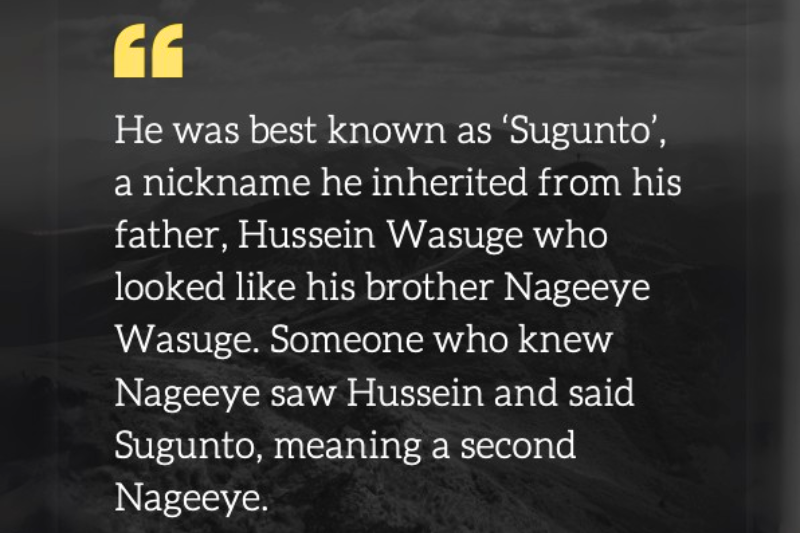
Twenty years ago today, on a Thursday morning, 7th December 2000 (10th Ramadan 1421) my father died in Buulaburte, a district in the Hiiraan region. That night I was sharing a room with my three younger brothers. We woke up crying.
My father had been suffering with diabetes for several months, and there were no functioning hospitals in Buulaburte that could give him even rudimentary healthcare. Even the diagnosis of diabetes was done by traditional means. He would urinate in an open space, and then ants would come to the urine indicating that there was sugar in his urine — that was how it was diagnosed. I remember how one would call a doctor in Jowhar when someone was sick and needed treatment explaining the symptoms and doing what the doctor recommended. There were few pharmacies functioning at that time. Twenty years later, sadly, little has changed and healthcare in Buulaburte, much like many other towns, is still weak and those people who can afford to go to Mogadishu for treatment.
That Thursday afternoon, my father was buried in a graveyard in the Bari neighborhood in Buulaburte. Heading to the burial scene, and for reasons I don’t know, the vehicles left me behind. I had to go on foot along with two friends. While crossing the historical bridge, a woman asked us if the dead person was a religious scholar since many people and vehicles were participating in the funeral. I couldn’t say a word to her.
Seeing him laid in the grave was the most emotionally painful memory in my life. I was standing about five meters away from the grave. When I saw his body laid inside, I couldn’t stand on my feet and wished to accompany him. No one could notice the grief in my face as all were focused on the burial. Although I was only 12 years of age, he was my best friend.
Abdullahi Hussein Wasuge was born in Mustaxiil town in eastern Ethiopia in around 1941. When I asked his only sister – who currently lives in Marka town, the capital city of the Lower Shabelle region – she said he was born in ‘Sanadkii Talyaani Carar’ (‘The Year the Italians Ran’).
He was best known as ‘Sugunto’, a nickname he inherited from his father, Hussein Wasuge who looked like his brother Nageeye Wasuge. Someone who knew Nageeye saw Hussein and said Sugunto, meaning a second Nageeye.
When Somalia took independence in 1960, my father joined the army that same year. He took his training in Mogadishu and used to work in the supply and logistics section of the military forces. He later (in early 1980s) graduated from Kulliyadda Jaalle Siyad (The Faculty of Comrade Siyad) in Mogadishu and was later promoted to colonel.
He worked in Tiyeegloow and Hudur towns in the 1970s. He was transferred to Buulaburte, and then to Gelinsoor in 1983 where he worked until 1990. I wish I would go to Gelinsoor one day to meet with the elderly people and find out more about his work and life there. Most of my elderly brothers and sisters had the chance to go to Gelinsoor in the 1980s and stay with him for several months.
One night in Gelinsoor, while thinking of a woman he would marry, my mother came to his mind. They knew each other in Mogadishu. At that time, she was in Jalalaqsi district. He traveled to Jalalaqsi to meet with her. After a couple of months of dating, they got married. I was the first of four sons from my mother, but I have many siblings from other mothers.
When the regime was toppled in early 1991, my father stayed in Buulaburte and became a respected traditional elder. I remember seeing him sitting with Ugaas Khaliif solving disputes. I used to accompany him at the mosque; he was among the last people to leave the mosque. On our way to the house, he would hang out with elders. I used to stand and wait for a while wondering when we would leave.
One unique characteristic of my father was that he used to smile all the time. Even if he was not happy, he smiled and no one would feel his anger. I am different. I need to learn how to smile when I am not happy.
A unique moment he shared with me was when I graduated from Al-Imra Institute of Languages. After one and a half years of an intensive English course, we took the final exam on 9 December 1999. Our graduation ceremony was set to take place on January 2nd 2000 at Hotel Camalow. I was the youngest among the graduates.
My father was among the individuals invited. I was supposed to present an English lecture at the event. It was a big deal for me as my father was there witnessing my achievement, but the school principal who was moderating the ceremony did not invite me to the podium – I didn’t know why. I was not happy about that. But to my surprise, he decided to give me the certificate before any other student. My father along with many other fathers was sitting in the front seats. The school principal said a few words of praise about me and then called my name. It was followed by huge applause. I took the certificate, and upon receiving it, there was a second round of applause — those series of nice moments made me forget about my discarded speech. I was very happy that my father witnessed the ceremony. I walked in the street proudly to show people that I had received a certificate, which was a very rare thing to have at that time.
The black and white photo attached to my English certificate was taken in December 1999. I was in my Qur’an Madarasa when I was called for the photo. I was taken to a house. I was wearing a T-shirt, so I was given the shirt of my classmate Omar ‘Criminal’ — I have no idea why his nickname was ‘Criminal’! Omar later migrated to Europe, and his body was sadly lost in the Mediterranean Sea. When I see the photo and the shirt, I remember Omar. May he Rest in Jannah.
Although my father Abdulahi Sugunto worked at the supply and logistics section of the military forces, he did not make money out of his work. He left only two plots of land and a few goats for us when he died.
After his death, we went through difficulties. But I became stronger. I am sure, if he would have been alive today, he would have been proud of my progress. We followed two different career paths, but with the same cause of serving for the common good.
I used to visit his grave every Friday when I was in Buulaburte. I remember and pray for him every day. I will never forget his smile, kindness, morning jogging, and attentive parenting.
May he Rest in Jannatul Firdowsa Al’Aclaa…. Aameen
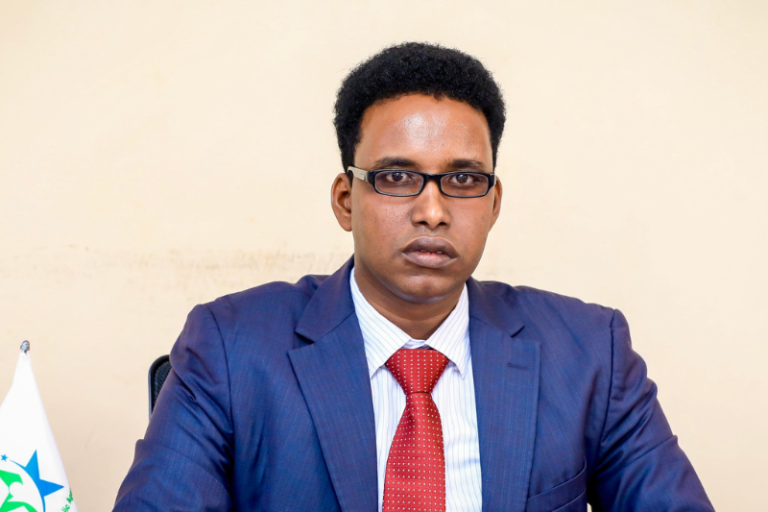
Is a researcher, teacher, podcaster and blogger. His work over the last decade has focused on teaching and researching governance, justice and social services in Somalia.


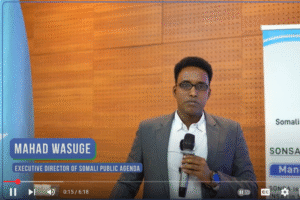

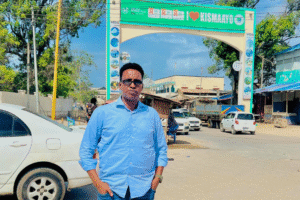
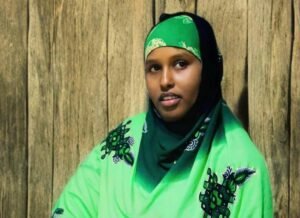
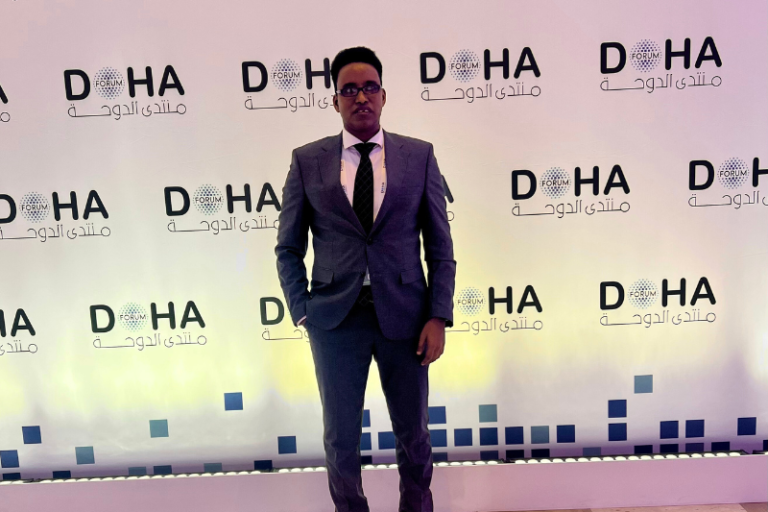

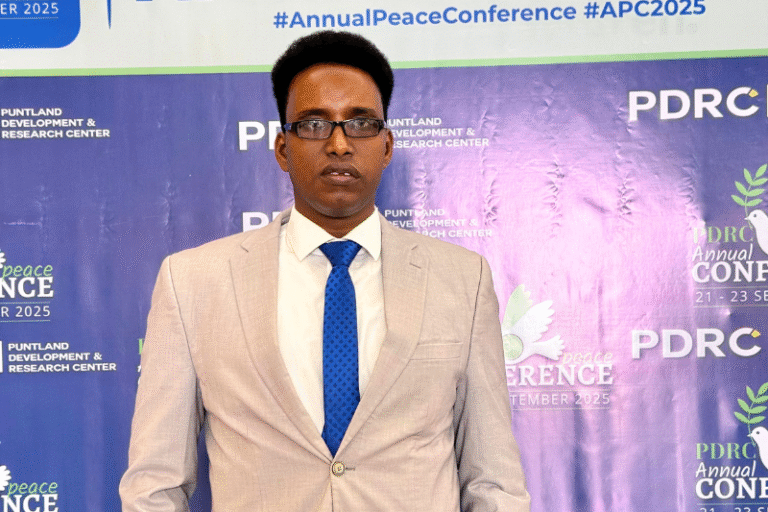

2 Responses
I’m so excited to your history my brother
Really I’m learned many things and enjoying when I’m reading to your essay
May Allah keep you
may Allah rest him janah